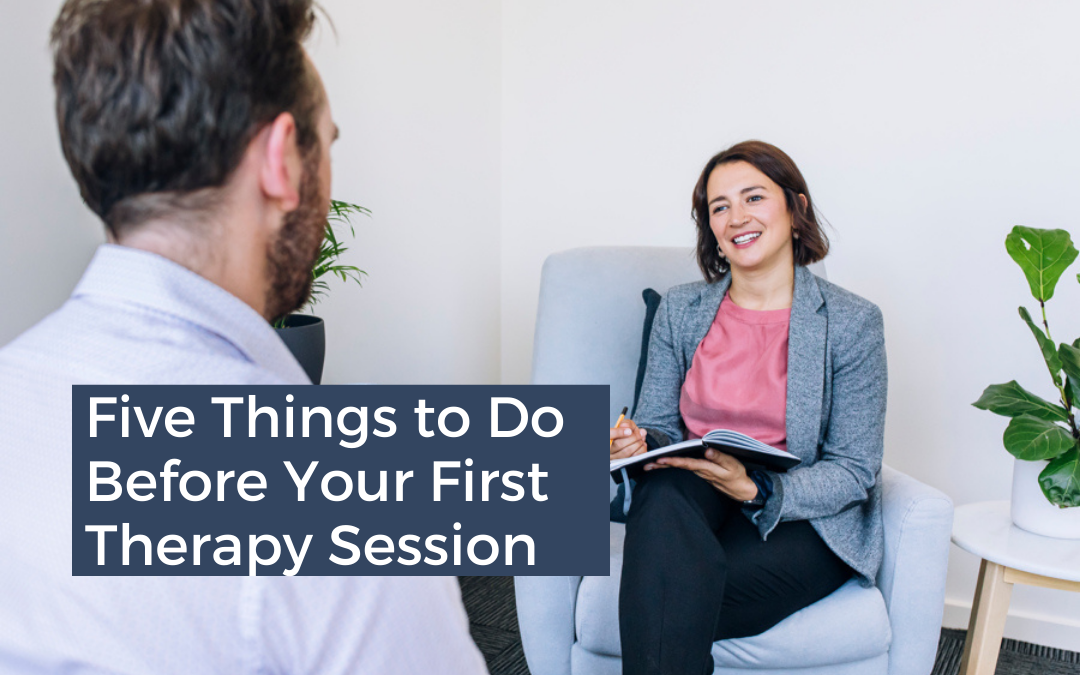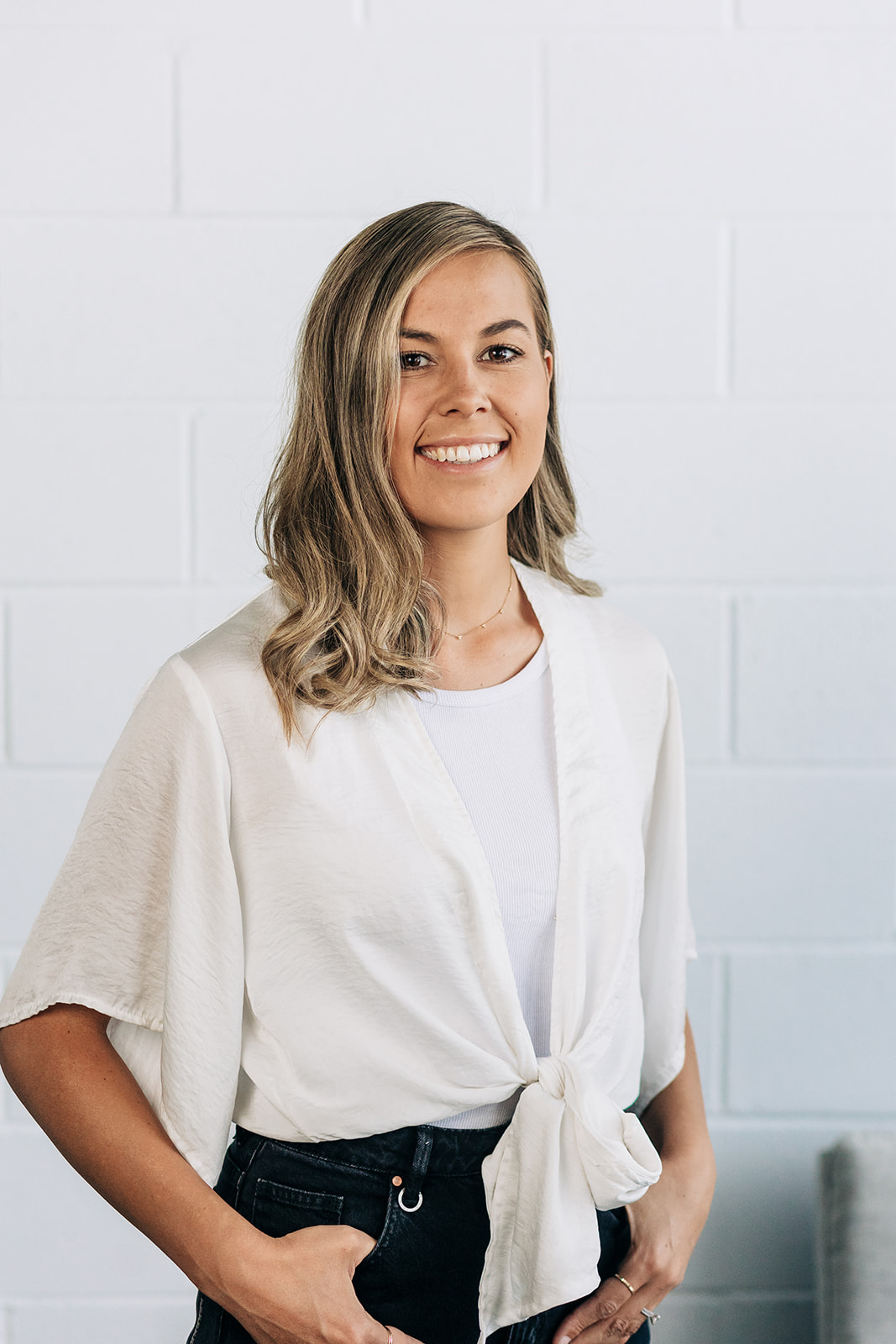Five Things to Do Before Your First Therapy Session
Starting therapy can feel both exciting and a bit nerve-wracking. Sharing your story with a stranger, being vulnerable, and maybe not even knowing what to expect—whether it’s your first time or you’re returning after a break—can be challenging. Preparing for your sessions can make a significant difference in how effective and comfortable the process is for you. Trust me, I know—I’ve been there.
I still remember going to see a school counsellor for the first time. I had no idea what to expect, and the unknown made me anxious. Years later, I felt the same kind of fear before my first couples therapy session. Even now, every time I meet a new therapist, I get worried and anxious about having to share my story all over again. What if they judge me? What will they think? It’s the same for a lot of other health professionals too—whether it’s going to the dentist, working with a naturopath, or seeing a physio or osteo, it can be a very vulnerable experience.
If you’re feeling this way, know that you’re not alone. Here are five things you can do before your first therapy session to help ease those nerves and make the most of your time.
1. Clarify Your Therapy Goals and Expectations
Think of starting therapy like beginning a new fitness journey. Before you dive in, it helps to have an idea of what you want to achieve. Are you aiming for general fitness, improving mobility, or building strength? And how do you prefer to do that—running, swimming, maybe avoiding cycling altogether? Knowing these preferences helps you choose the right coach or gym that aligns with your goals.
Therapy is similar. Before your first session, take some time to think about why you’re seeking therapy and what you hope to achieve. Are you looking to manage anxiety, improve your relationships, or work through a specific life event? Being clear about your goals can help guide your therapy and ensure that you and your therapist are on the same page from the start.
Ask yourself questions like:
- What led you to seek therapy, and why now?
- What are your hopes and expectations for therapy?
- What specific challenges or concerns do you want to address?
You don’t need to have all the answers right away, but reflecting on these questions can provide direction and make your sessions more focused.
2. Research Different Therapy Approaches
Just as you might explore different fitness regimes—whether it’s weightlifting, yoga, or swimming—before deciding on the best way to achieve your health goals, it’s useful to understand the various approaches in therapy. Cognitive Behavioural Therapy (CBT), psychodynamic therapy, and mindfulness-based approaches are just a few examples. Understanding the basics of different therapy modalities can help you choose a therapist who specializes in the approach that might be most beneficial for your needs.
If you’re unsure which approach is right for you, consider discussing it with your therapist during your first session. They can provide guidance and help you understand which methods might be most effective for your situation.
3. Reflect on Your Past Therapy Experiences
Think about any past experiences with therapy or similar support, much like you would assess what worked and didn’t in previous fitness routines. What exercises did you enjoy? Which ones did you find challenging or unhelpful? If this is your first time in therapy, consider how you typically cope with stress or challenges. Understanding your own patterns can help your therapist tailor their approach to better support you.
Questions to consider include:
- What past experiences might you want to discuss?
- How do you typically respond to stress or challenges?
- What are your strengths, and how can they support your therapy?
Even if you don’t share all of this in your first session, having this insight can help you and your therapist build a more effective working relationship.
4. Prepare Emotionally and Mentally for Therapy
It’s normal to feel a mix of emotions before starting therapy—nervousness, hope, even scepticism. Just like how you might feel before starting a new fitness regime, wondering if it will work for you or if you’ll stick with it. I’ve certainly felt all of those emotions at different times. Acknowledge these feelings and consider how they might influence your therapy experience. Are you feeling particularly anxious or hesitant? Are you hopeful about the changes therapy might bring?
You don’t have to dive deep into these emotions before your session, but being aware of them can help you communicate better with your therapist and set the stage for a more open and honest dialogue.
5. Be Open to the Therapy Process
Finally, approach your first therapy session with an open mind, much like starting a new fitness journey. Therapy is a process, and it may take some time before you start to see significant progress. Be patient with yourself and with the process. Trust that with the right support and a willingness to engage, you can make meaningful strides towards your goals.
It’s also important to remember that you don’t have to answer every question or even have everything figured out right away. Therapy is a collaborative process, and your therapist is there to guide you as you explore your thoughts and feelings.
By taking these steps before your first therapy session, you’ll set yourself up for a more focused and productive experience. Clarifying your goals, understanding different therapy approaches, reflecting on past experiences, preparing emotionally, and being open to the process are all key elements to getting the most out of therapy. Remember, therapy is about you and your journey, so take the time to prepare and enter your sessions with confidence. And if you’re feeling anxious or unsure—that’s okay. I’ve been there too, and it’s all part of the process.
Download our free “Get Ready for Therapy” Journal
Download the Journal
Or reach out to our friendly admin team for more information.









Recent Comments